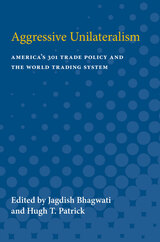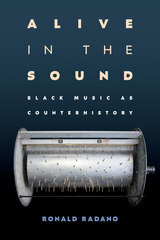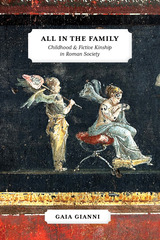6 books about English Literature

Backgrounds of English Literature, 1700-1760
Cecil Moore
University of Minnesota Press, 1953
Backgrounds of English Literature, 1700-1760 was first published in 1953. Minnesota Archive Editions uses digital technology to make long-unavailable books once again accessible, and are published unaltered from the original University of Minnesota Press editions.The five studies collected in this volume have the common purpose of establishing a background for an understanding of eighteenth-century English literature. Some of the most popular ideas and ideals of the period are traced to their sources in contemporary philosophy, science, politics, and religion.All of the studies relate in some way to what the seventeenth century called the climate of opinion. They confirm the observation of Shelley that all writers are subjected to “a common influence which arises out of an infinite combination of circumstances belonging to the time in which they live.” All the studies belong to that older style of literary investigation to which scholarship owes its name and to which every student interested in basic ideas and the origins of concepts will sooner or later wish to turn.The first two studies, “Shaftesbury and the Ethical Poets” and “The Return to Nature in English Poetry of the Eighteenth Century,” throw as much light on the Romantic poetry of the nineteenth century as they do on the poetry of the eighteenth. The nature worship that one thinks of as peculiarly Wordsworthian is shown to lie at the heart of deism, the rationalistic philosophy of a century earlier.In “Whig Panegyric Verse,” the ideals of the Whig party, as expressed by poets of the time, are examined in relation to Shaftesbury’s moral philosophy. In “John Dunton: Pietist and Impostor,” the morbid gloom familiar in the “graveyard poets” is seen to reflect a widespread popular taste. That the melancholia of the period was so common as to be considered a national characteristic appears from “The English Malady,” which is largely concerned with the medical literature of the time.
[more]
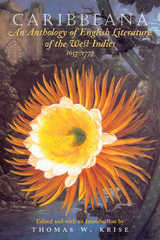
Caribbeana
An Anthology of English Literature of the West Indies, 1657-1777
Edited by Thomas W. Krise
University of Chicago Press, 1999
Although the colonies in the West Indies were as important to the expanding British empire as those in North America, writings from the British West Indies have been conspicuously absent from anthologies of seventeenth- and eighteenth-century British literature. In this first literary anthology dedicated to the region, Thomas W. Krise gathers important but little-known descriptions, poems, narratives, satires, and essays written in and about this culturally rich and politically tempestuous region.
Caribbeana offers invaluable period commentaries on slavery, colonialism, gender relations, African and European history, natural history, agriculture, and medicine. Highlights include several of the earliest protests against slavery; a superb ode by the Cambridge-educated Afro-Jamaican poet Francis Williams; James Grainger's extended georgic poem, The Sugar Cane; Frances Seymour's poignant tale of the Englishman Inkle who sells his Indian savior-lover Yarico into slavery; and several descriptions of the West Indies during the early years of settlement.
Caribbeana offers invaluable period commentaries on slavery, colonialism, gender relations, African and European history, natural history, agriculture, and medicine. Highlights include several of the earliest protests against slavery; a superb ode by the Cambridge-educated Afro-Jamaican poet Francis Williams; James Grainger's extended georgic poem, The Sugar Cane; Frances Seymour's poignant tale of the Englishman Inkle who sells his Indian savior-lover Yarico into slavery; and several descriptions of the West Indies during the early years of settlement.
[more]

The Celtic Revival in English Literature, 1760-1800
Edward D. Snyder
Harvard University Press
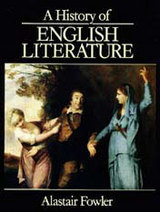
A History of English Literature
Alastair Fowler
Harvard University Press, 1987
This delightful introduction to English literature, engaging, readable, and wise, is enlivened by the opinions and pleasures of a fine scholar-critic. Historically, it ranges from the Middle Ages to the present, concentrating on British writing but glancing also at selected American and Commonwealth authors, and lingering over the works of key figures such as Chaucer, Spenser, Milton, and Dickens.
[more]
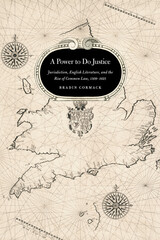
A Power to Do Justice
Jurisdiction, English Literature, and the Rise of Common Law
Bradin Cormack
University of Chicago Press, 2008
English law underwent rapid transformation in the sixteenth century, in response to the Reformation and also to heightened litigation and legal professionalization. As the common law became more comprehensive and systematic, the principle of jurisdiction came under particular strain. When the common law engaged with other court systems in England, when it encountered territories like Ireland and France, or when it confronted the ocean as a juridical space, the law revealed its qualities of ingenuity and improvisation. In other words, as Bradin Cormack argues, jurisdictional crisis made visible the law’s resemblance to the literary arts.
A Power to Do Justice shows how Renaissance writers engaged the practical and conceptual dynamics of jurisdiction, both as a subject for critical investigation and as a frame for articulating literature’s sense of itself. Reassessing the relation between English literature and law from More to Shakespeare, Cormack argues that where literary texts attend to jurisdiction, they dramatize how boundaries and limits are the very precondition of law’s power, even as they clarify the forms of intensification that make literary space a reality.
Tracking cultural responses to Renaissance jurisdictional thinking and legal centralization, A Power to Do Justice makes theoretical, literary-historical, and methodological contributions that set a new standard for law and the humanities and for the cultural history of early modern law and literature.
A Power to Do Justice shows how Renaissance writers engaged the practical and conceptual dynamics of jurisdiction, both as a subject for critical investigation and as a frame for articulating literature’s sense of itself. Reassessing the relation between English literature and law from More to Shakespeare, Cormack argues that where literary texts attend to jurisdiction, they dramatize how boundaries and limits are the very precondition of law’s power, even as they clarify the forms of intensification that make literary space a reality.
Tracking cultural responses to Renaissance jurisdictional thinking and legal centralization, A Power to Do Justice makes theoretical, literary-historical, and methodological contributions that set a new standard for law and the humanities and for the cultural history of early modern law and literature.
[more]

Rabelais in English Literature
Huntington Brown
Harvard University Press
Traces those motives and modes of expression in English literature from the Elizabethans through the great masters of the eighteenth century which have been inspired or affected by the example of Gargantua and Pantagruel. The material presented is sure to interest both the student of the French Renaissance, as a notable memorial of the vitality of its greatest genius, and the student of English literature, as the makings of a tradition which is clearly in the ascendant today. Appendices include extracts from certain imitators and critics not readily accessible outside large libraries.
[more]
READERS
Browse our collection.
PUBLISHERS
See BiblioVault's publisher services.
STUDENT SERVICES
Files for college accessibility offices.
UChicago Accessibility Resources
home | accessibility | search | about | contact us
BiblioVault ® 2001 - 2025
The University of Chicago Press



